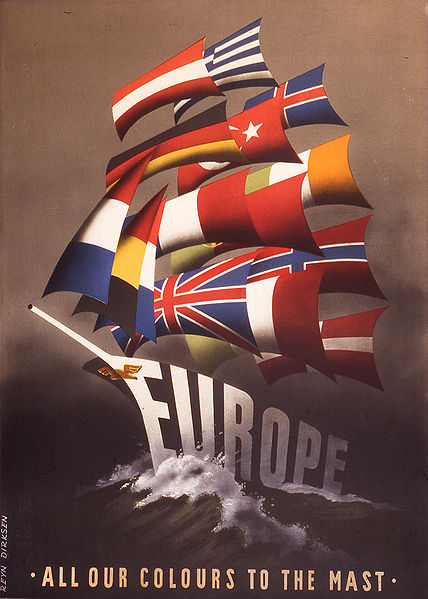Night Thoughts on Europe
Mini Teaser: Europe’s problems go far beyond deflating currency and rising debt. It suffers from a lack of will, a crisis of confidence—and a serious identity problem. The once-great superpower has already fallen. Centuries of predominance slip away.
At present, the majority seems to be undecided what way to choose. They are reluctant to make a clean break with the EU but equally reluctant to move forward toward a superstate. Some feel that they may fare better facing the years to come alone; small, it used to be said, is beautiful. Small-town life in the past had its great charms. The everyday as depicted in the paintings of Carl Spitzweg, the German romantic painter, was certainly more pleasant than life among the satanic mills of England.
Perhaps the common ties and values and the mutual trust are not strong enough to serve as the basis for a real union. Perhaps with each country fending for itself they will do as well as with forces combined.
And if they do not do as well, this could be compensated for by greater happiness. It is not certain that even a united Europe would have the vigor and political will to play a truly important role in international politics. And there is always the chance that the coming storms will bypass a Europe taking a low profile. Keeping a low profile seems to come easier these days than generating political will—and certainly appears to be less risky.
THE EUROPE I have known is in the process of disappearing. In its place will be something in between a regional power and indeed a valuable museum. For the time being I tend to agree, despite everything, with Alfred, Lord Tennyson: “Better fifty years of Europe than a cycle of Cathay.”
There is much that is admirable in Europe’s past and even in its present, weakened state. But I am no longer certain to what extent Tennyson’s sentiments are shared by a majority of Europeans, to what degree there still is firm belief in a European identity, a European model and European values—and above all the will to defend them. Instead there is the comforting thought that other parts of the world seem to be in decline too. The present crisis is not primarily a financial-debt crisis but a crisis of lack of will, inertia, tiredness and self-doubt, and, however often “European values” are invoked, a crisis of lack of self-confidence, a weak ego in psychoanalytical terms.
Europe’s status in the world was predominant for a few centuries just as that of other powers earlier on; this has come to an end. All recorded history is the story of rise and decline. Unlike university professors, superpowers have no tenure. At the dawn of the modern age Giambattista Vico in his famous and influential Scienza Nuova argued that history moves in recurrent cycles—the divine, the heroic and the human (an imperfect translation of l’eta degli uomini). Europe is post-heroic. We are seeing it turn human.
Walter Laqueur is the author of the forthcoming After the Fall: The End of the European Dream and the Decline of a Continent, an assessment of the European crisis (Thomas Dunne Books, 2012).
Image: Pullquote: The Europe I have known is in the process of disappearing. In its place will be something in between a regional power and indeed a valuable museum.Essay Types: Essay
Pullquote: The Europe I have known is in the process of disappearing. In its place will be something in between a regional power and indeed a valuable museum.Essay Types: Essay 